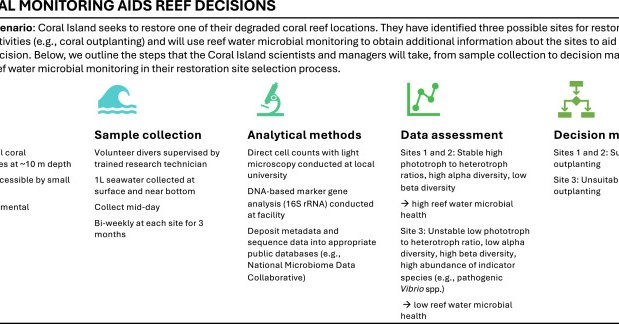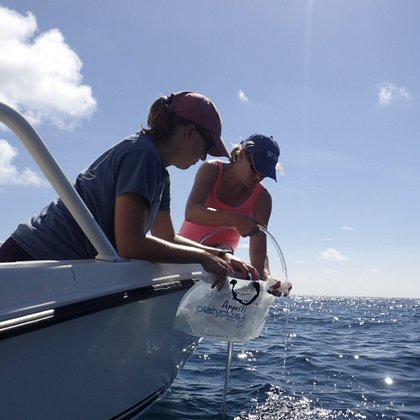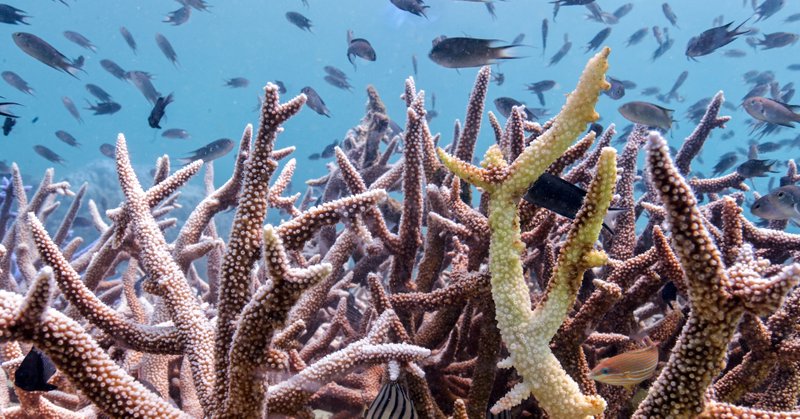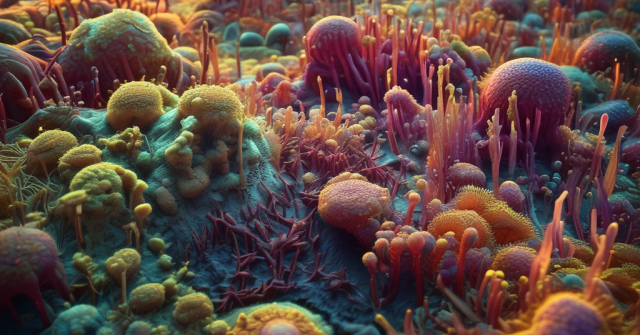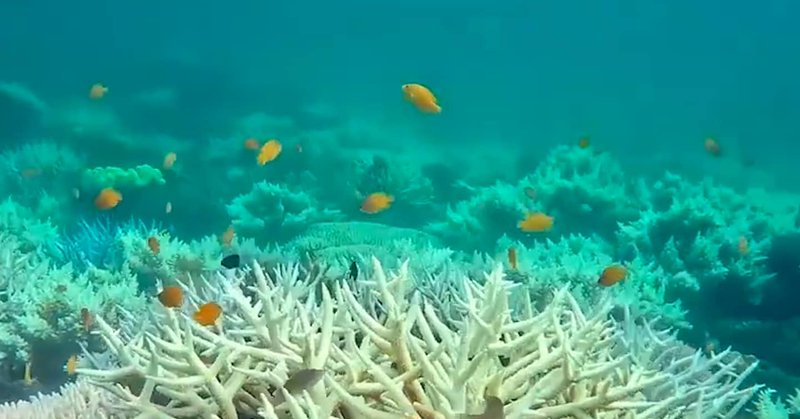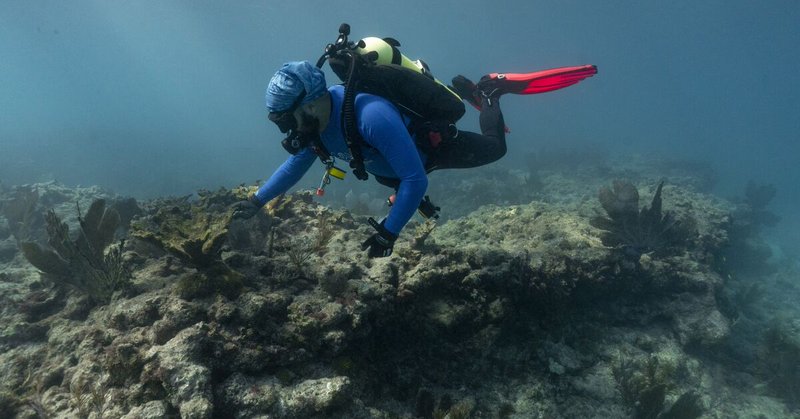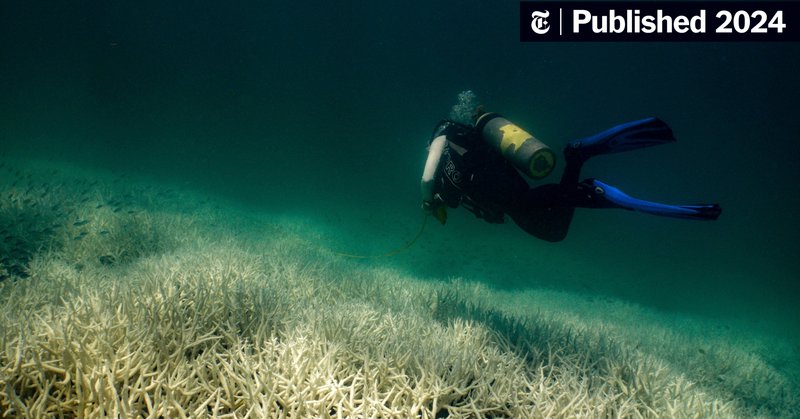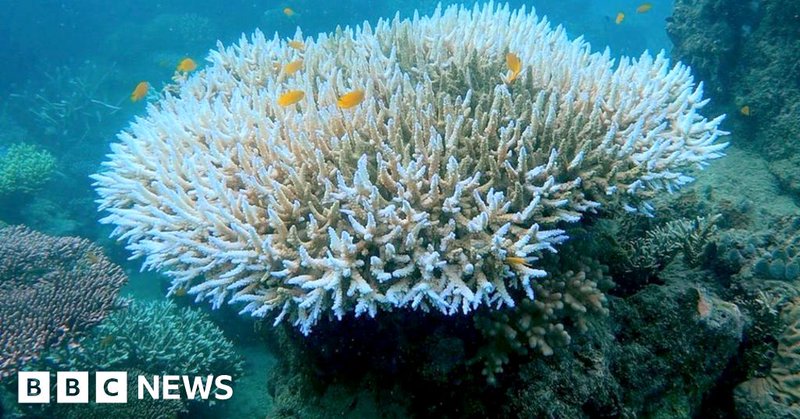
Dr. Jennifer Salerno 🪸🌊🧬🧫🔬
@MicrobiaLoop
Followers
1K
Following
5K
Media
216
Statuses
3K
Marine Biologist/Microbial Ecologist working @ the #scipol interface, Asst. Prof. @ESPMasonU & @PEREC_GMU, @AAAS_STPF & @SeaGrant Knauss Alum, mom
Old Town Alexandria, VA
Joined December 2011
UPDATE: We have located my brother. He is alive and okay. Thank you all so much for your support and please check on your loved ones ♥️ Also thanks to the police who were very responsive and supportive.
0
0
0
🦠🪸🐠🌊Microbes matter for reef and ocean health and can be powerful diagnostic tools. Hoping this helps translate knowledge to coral reef conservation and restoration teams interested in enhancing monitoring efforts. #ReefSolutions @WHOI @MicrobiaLoop
https://t.co/p3bhHi9e7v
whoi.edu
Compared to taking visual observations of reef habitats, analyzing water microbes provides a more immediate picture of health.
1
2
10
Exclusive: Global coral bleaching event expands, now the largest on record | Reuters
reuters.com
The mass bleaching of coral reefs around the world since February 2023 is now the most extensive on record, the National Oceanic and Atmospheric Administration (NOAA) told Reuters this week.
0
0
0
Taps mic…ahem, science twitter are you still here? Where are my #Diadema experts at? Interested in collaborating!
2
2
8
We are hiring! Please share with your colleagues who might be interested in joining the Environmental Science and Management discipline at The University of Newcastle, Australia. This is an ongoing academic Level B lecturer role:
livehire.com
We are looking for workers to join our dedicated and innovative team at University of Newcastle. Become one of our highly skilled team members and apply now.
0
21
26
Check out our #CoralReef Information System. We’ve got data, publications, and more! https://t.co/ulCGNwXbrv
0
8
44
So glad to see this article in @Nature 👏 Moms go above and beyond to travel for work when their kids are small. I'm beyond those years now, but still sometimes get asked "why I didn't bring my kids" to a meeting (don't ask women that pls). @Momademia
https://t.co/gUBasqYqIY
nature.com
Nature - Three scientist mothers call for a change in how conference childcare costs are reimbursed, drawing on their personal experiences.
3
22
98
OPEN CALLS #postdoc Are you comfortable with analysis of large-scale #microbiome data? Do a #postdoc with us as part of the @CoDietEU project with focus on non-communicable diseases. For any Q feel free to contact @nsegata Deadline: June 17, 2024 https://t.co/Mv6zbXAPhB
2
14
27
The bags come out of fish/turtle/shark mouths here. The vibes are extremely good.
5
30
700
The ocean around Florida and Caribbean is heating up way earlier than it did last year. The black line shows that May 2024 sea surface temperatures are already hotter than all previous Mays back to 1985. https://t.co/RFMvhBhsLs
#ClimateChange #CoralBleaching @CoralReefWatch
0
31
47
In honor of my #MattersMicrobial session with @srbordenstein: a cartoon about control by @beatricebiology @univpugetsound @ASMicrobiology
0
14
43
🤗
Great work by DEEP LOOK, an ultra-HD (4K) short video series created by KQED in San Francisco and presented by @PBS Digital Studios. See the unseen at the very edge of our visible world. Do you see what i see? #holobiont
https://t.co/3Wa3TjTuBA
0
0
1
Corals are bleaching in every corner of the ocean, triggering NOAA alert - The Washington Post
washingtonpost.com
More than 54 percent of all the reef areas on the planet have experienced bleaching level heat-stress in the past year, according to the Global Bleaching Event Index.
0
0
0
Record Ocean Temperatures Are Plunging the World’s Coral Reefs Into Crisis - Bloomberg
bloomberg.com
A second global bleaching event this decade is underway, threatening marine ecosystems that support an estimated $2.7 trillion of economic activity.
0
0
0
”Each of the 3 previous global bleaching events has been worse than the last. During the 1st, in 1998, 20% of the world’s reef areas suffered bleaching-level heat stress. In 2010, it was 35%. The third spanned 2014 to 2017 and affected 56% of reefs.”
nytimes.com
Rising sea temperatures around the planet have caused a bleaching event that is expected to be the most extensive on record.
0
0
1


